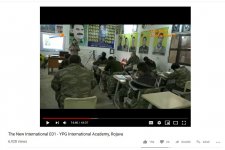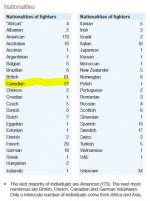he rise of Isis attracted thousands of foreigners from around the world to Syria. But it wasn’t just religious extremists who were drawn here.
While scores were travelling to Syria for jihad, a smaller but no less committed group of internationalists was heading to the other side of the battle.
“People back home like to think Daesh [Isis] is just a problem for the Middle East and that’s it,” says Kyle Town, a mild-mannered 30-year-old from Thunder Bay, in Ontario, Canada, using the Arabic name for Isis. “But it doesn’t just exist here. It affects everyone.”
Town, a former sheet-metal worker, is among thousands of westerners who travelled to Syria to fight Isis and take part in a “revolution” led by a hitherto little-known Kurdish group in the country’s north.
Among them are former soldiers, charity workers, students, engineers and all manner of anarchists and leftists. Eight Britons who went to fight Isis – men and women – died in towns and cities unknown to most people back home.
The volunteers have drawn comparisons to the International Brigades, the foreign fighters who travelled to Spain to battle Franco’s fascists in the 1930s and were made famous by George Orwell. This time, though, they are on the winning side.
Isis’s self-declared caliphate is all but defeated, leaving those who came to fight it at a crossroads. Many say they are not ready to return home, and instead will stay on in Syria. But as the civil war transitions to a new phase, their role is uncertain.
“There is a lot of work besides fighting Daesh,” says Town, who is currently in an infantry unit. “There are all sorts of civilian works. I came here because I wanted to participate in this revolution as best I can.”
Town is a member of a leftist Kurdish militia called the People’s Protection Units (YPG), which has counted thousands of western volunteers in its ranks over the past few years ...




